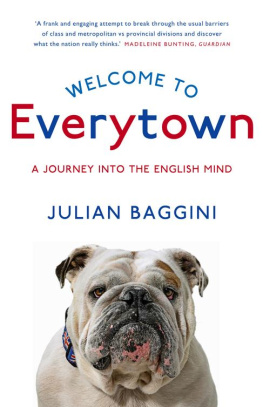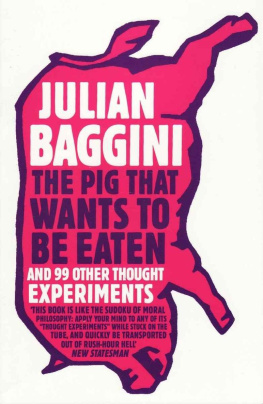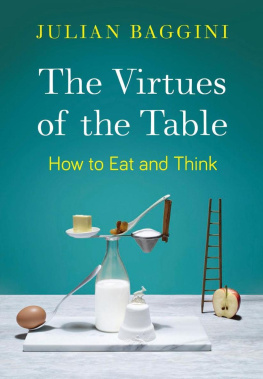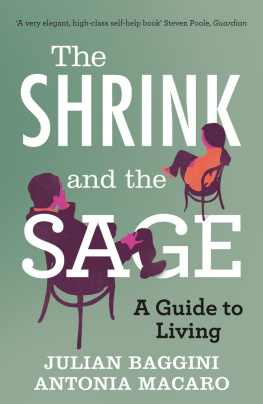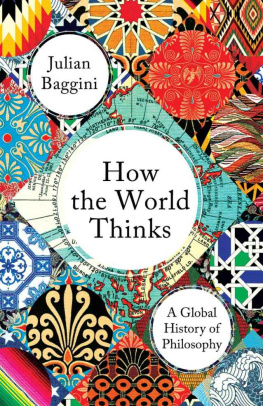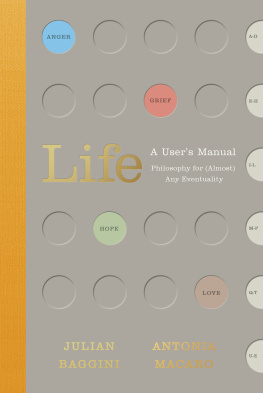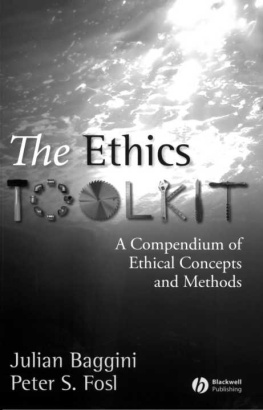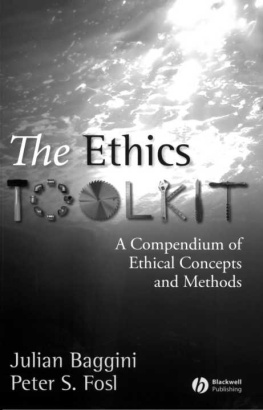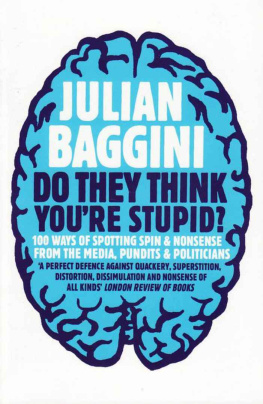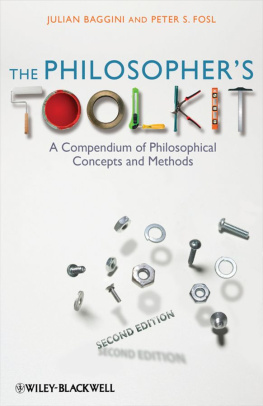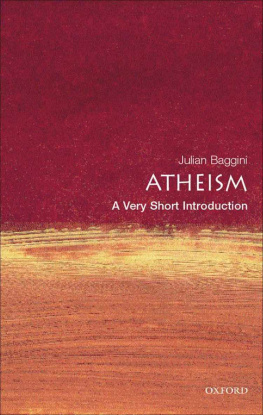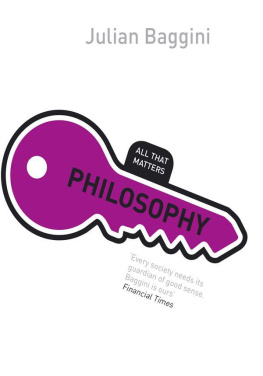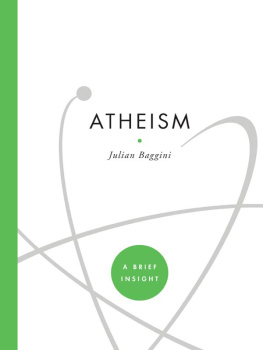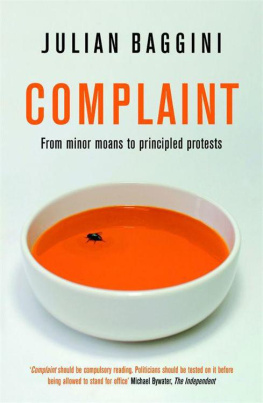Julian Baggini - Welcome to Everytown
Here you can read online Julian Baggini - Welcome to Everytown full text of the book (entire story) in english for free. Download pdf and epub, get meaning, cover and reviews about this ebook. year: 2013, publisher: Granta Books, genre: Politics. Description of the work, (preface) as well as reviews are available. Best literature library LitArk.com created for fans of good reading and offers a wide selection of genres:
Romance novel
Science fiction
Adventure
Detective
Science
History
Home and family
Prose
Art
Politics
Computer
Non-fiction
Religion
Business
Children
Humor
Choose a favorite category and find really read worthwhile books. Enjoy immersion in the world of imagination, feel the emotions of the characters or learn something new for yourself, make an fascinating discovery.
- Book:Welcome to Everytown
- Author:
- Publisher:Granta Books
- Genre:
- Year:2013
- Rating:4 / 5
- Favourites:Add to favourites
- Your mark:
- 80
- 1
- 2
- 3
- 4
- 5
Welcome to Everytown: summary, description and annotation
We offer to read an annotation, description, summary or preface (depends on what the author of the book "Welcome to Everytown" wrote himself). If you haven't found the necessary information about the book — write in the comments, we will try to find it.
Welcome to Everytown — read online for free the complete book (whole text) full work
Below is the text of the book, divided by pages. System saving the place of the last page read, allows you to conveniently read the book "Welcome to Everytown" online for free, without having to search again every time where you left off. Put a bookmark, and you can go to the page where you finished reading at any time.
Font size:
Interval:
Bookmark:
An insightful and often amusing investigation of what it means to be English London Review of Books
Accessible, refreshing philosophy for a nation notoriously suspicious of the subject Financial Times
This book is about what happened when [Baggini] bravely, fascinatingly decided to break free of his comfort zone and go in search of what the real England is like [he is] a sensitive observer who takes people and places on their own terms. He is also good at examining his own prejudices and fears Independent
Baggini is an intelligent, amiable guide to this alien(ish) territory, and Welcome to Everytown [has] perceptive things to say about class and suburbia and Englishness Time Out
Baggini presents his findings with sympathy and understanding Metro
Baggini, a philosopher with a clear and witty perception of cant, makes a case for Englands being a traditional conservative-communitarian country, not the modern liberal-individualist society that it likes to think (or is told) it is (or should be) The Times
Intelligent and resourceful [with] many fascinating observations Book Magazine
I would like to thank the many people of Rotherham who helped make my stay there so enjoyable, including Alan, Alf, Ann and Andy, Barry, Colin, Dave, Harry, Ian, Jack, Paul and Carol, Pete, Ray and Tractor Dave from The Travellers; Keith, Adrian and Teresa Bury from Maltby; Alex, Tina, Andy and Debbie, Elaine and Shane (splitters!) from The Ball; Dave and Ernest, Alan, Arthur, Mavis and Pat from The Transport Club; Dave Brennan and his band, Jim, Dot and their two friends whose names I shamefully dont recall from The Horseshoes; Phil and Stuart from Philip Howard Books; neighbours Rachel and Steve, Bob and Kath and their kids; Councillor Shaukat Ali and his team at MAARI; Dearne Valley Ramblers too many to mention without offending the names I inevitably forget; Jim and Brian from Maltby Tennis Club; Trevor Potts and all the fabulous singers from The Stockyard; wonder mechanic Kenny Melling; Amanda from Rotherlets and Darren the landlord. Apologies to any others I have not mentioned but should have.
In addition Id like to thank Yasmin Alibhai-Brown, Alessandra Buonfino, Nicholas Fearn, Justin Irwin, Fiona Measham, Roderick Graham and Huw Thomas for various help tracking down information. Special thanks to Patrick Tate at CACI for providing information on ACORN profiles that enabled me to select S66 as my Everytown. Any lack of wisdom in this choice is entirely down to me.
As ever, numerous thanks to those at Granta, especially my editor George Miller, who with his partner Katharine Reeve also went beyond the call of duty and helped move me to Bramley. A big hand also to Louise Campbell, Frances Hollingdale, Gail Lynch, Leonie Taylor all gone but not forgotten, plus Sajidah just one more query Ahmad, Julio Ferrandis, Sara Holloway, Angela record-breaker Rose, Pru Rowlandson, Bella Shand, Sarah Wasley, Cathie Game and all the splendid sales team working so hard to get my books onto the shelves. Thanks also to the ever-loyal and supportive Lizzy Kremer.
Since people did not talk to me on the understanding I would expose them to the nation, most names have been changed. In addition, the regulars at The Travellers have been mixed up, boiled and distilled into rather fewer composite, fictionalized individuals (Andy, Johnny, Neil, Pete and Reg). I have included only true words and descriptions of these people, but not necessarily in the true order. Where real names are used, surnames are usually included, except in the case of Tractor Dave, which is a real name I couldnt bear to change.
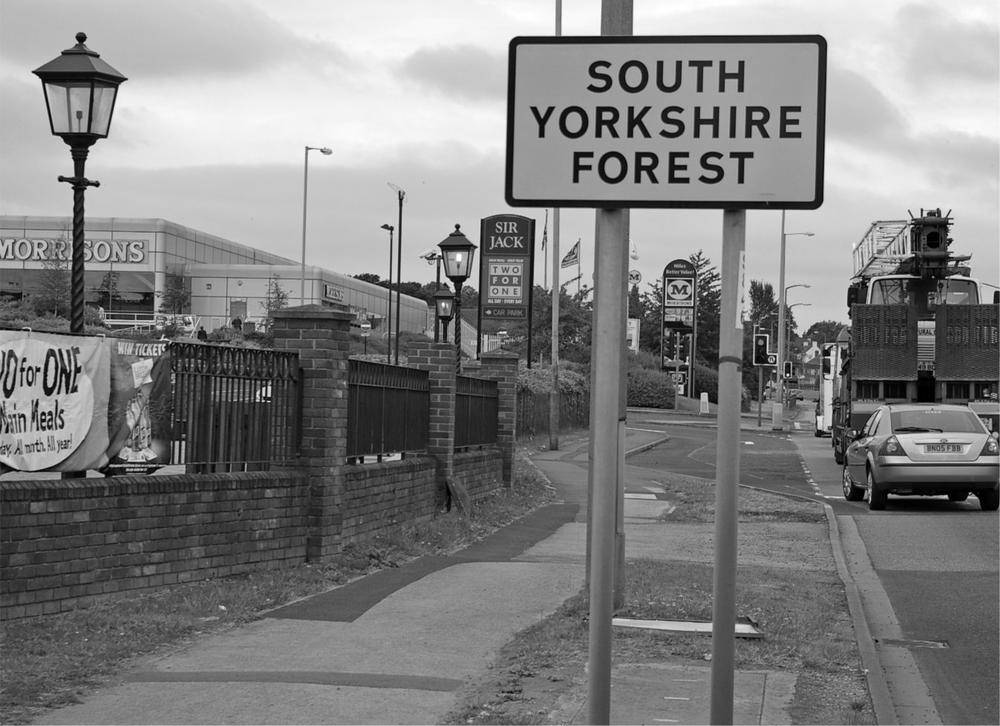
Welcome
F ew impressions are as vivid as those of arriving in a strange place for the first time: the scrum of imploring bodies jostling for your custom in Nairobi, the chaos and disorder of Athens, the unrelenting reminders of the past penetrating the present in Rome, the just-arrived-on-a-film-set unreality of New York. People travel all over the world searching for such experiences of the world made new. But none of my own arrivals into foreign lands unsettled me as much as when I stepped off the bus and first set foot in Everytown. Here on Braithwell Road I had a curious sense of being somewhere that was at once entirely familiar, and at the same time utterly alien. And absurdly, these confused emotions were being stirred in Rotherham, South Yorkshire.
I was here in June 2005 to find somewhere to live for six months, as part of my attempt to understand the English mind: what we think, what we believe, what we want and what we value. I wasnt in search of the elusive national character or the essence of Englishness. Rather, I was looking to describe and examine the national folk philosophy, the set of beliefs and assumptions that informs how we live and how we think.
The English care little for philosophy in the formal sense. I laughed when spoof chat show host Alan Partridge named his favourite philosopher, but I didnt realize how insightful the joke was until I read a letter in the Yorkshire Post which quoted him more or less verbatim, talking of the late actor, writer and philosopher, Peter Ustinov. But although people may not know much about philosophy, they know what they like. Im always amazed at how many people profess to be a bit of a philosopher myself. One person I met gave me a short pamphlet he had written claiming to prove the existence of God. Another, a retired rambler had similar ideas and had been trying to get his work published for years. He believed that we had perverted the true teachings of Jesus and that nature would heal everything if we left it alone.
But the English philosophy I was looking for was implicit rather than explicit. Most people arent able to tell you what their metaphysical framework is, for example, not least because few English schools believe that their students (or teachers) have any need to know what metaphysics means. Nevertheless, everyone carries around with them a set of assumptions about the fundamental nature of the world: whether it is purely physical or partly spiritual; whether things just happen or whether everything has a purpose; whether we are locked in the present or whether we can see into the future or past. Likewise we all operate according to an implicit value system, a sense of what the good life entails, and an idea of how the laws and institutions of the country should be arranged. What I wanted to do was to identify what the dominant philosophy of England added up to, and whether it was sustainable.
To uncover this underlying belief system, I wanted to rely on facts, not just my personal opinions and perceptions. In his book about the English, A. A. Gill ventured that facts are what pedantic, dull people have instead of opinions. I would counter that facts are what boorish, bigoted people lack to back up their opinions. But facts alone cannot tell you everything. C. P. Snow was only half-right when he said that Comment is free, but facts are sacred. Facts need to be dissected and analysed if they are to tell us anything of use.
Finding pertinent facts is difficult enough in any country, but is even more complicated in one in which identity is shared between England, Great Britain and the United Kingdom an entity that, perhaps uniquely among nations, lacks its own adjective to describe the things and people which belong to it. Ulster Unionists have to rely on the geographically and politically inaccurate term British to express their loyalty. Most facts I would discover would be drawn from the nation as a whole, and not just England. Why then is this not a journey into the British mind? The reason is that England dominates the UK, accounting for nearly 85% of its population. Facts about the British are therefore mainly facts about the English: any differences in Wales, Scotland and Northern Ireland are diluted and lost. In many cases these differences are slight, and so a lot of what I would be looking at would concern the whole of the United Kingdom, as well as England. But it is also the case that many of the beliefs and opinions are common to even larger units: northern Europe, Anglo-Saxon nations, the developed West, and in some cases perhaps human nature. So it should not be assumed that what I say about the English folk philosophy applies only to the English. The purpose is to describe the English mind accurately, and if as a result we are able to differentiate it from the minds of others, that is a bonus.
Font size:
Interval:
Bookmark:
Similar books «Welcome to Everytown»
Look at similar books to Welcome to Everytown. We have selected literature similar in name and meaning in the hope of providing readers with more options to find new, interesting, not yet read works.
Discussion, reviews of the book Welcome to Everytown and just readers' own opinions. Leave your comments, write what you think about the work, its meaning or the main characters. Specify what exactly you liked and what you didn't like, and why you think so.

